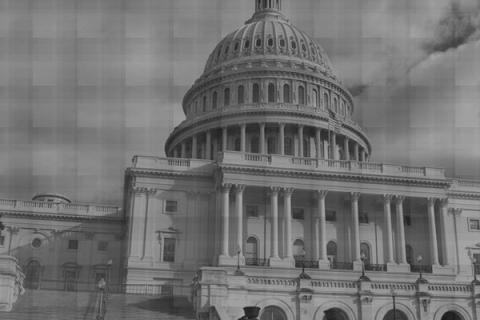
While the fiscal cliff has been the main focus of recent news coverage regarding the national budget, it fits into a larger discussion about America's debt. While the conversation has largely been between Congress and the president, as well as some inclusion of business and union leaders, national debt organizations are using grassroots tactics to inform the public about the crisis.
Ron Haskins of the Brookings Institute highlighted the importance of grassroots support for deficit reduction plans:
"...anyone with a calendar should have known for a year now that these revenue and spending elements of the cliff were going to hit simultaneously shortly after New Year's Eve. Further, there have been any number of opportunities in the last several years to extricate the nation from the geological fault that caused the cliff - the nation's expanding debt...Without the American people behind spending cuts and tax increases, the pusillanimous political class will continue applying their by now highly perfected routine of can kicking—never mind that every kick brings the nation closer to a financial disaster."
Unlike policy think-tanks, grassroots organizations place the national debt in perspective by emphasizing the activist over the politician. Many groups are pushing for bipartisan action in which both sides agree on principles first.
THE CAMPAIGN TO FIX THE DEBT
The Campaign to Fix the Debt was founded by former Republican senator Alan Simpson and former Clinton Chief of Staff Erskine Bowles with the purpose of educating the public on the dangers of a growing national debt. Simpson and Bowles say the deficit can be reduced by $4 trillion.
The debt is a long-term issue that looks beyond the fiscal cliff and has been decades in the making. An informative website that contains everything from reports and presentations, step-by-step toolkits, to an online petition, it encourages people to start their own grassroots campaign. Currently, there are chapters in 16 states.
As a way bring the public voice to light, people signing the Fix the Debt petition are encouraged explain why tackling the debt is important to them. So far over 300,000 people have signed the petition with a total goal of 400,000.
ENACT THE PLAN
One of the newest groups is Enact the Plan, which promotes the Simpson-Bowles Report and the solutions brought forth by Fix the Debt. This group was formed by Timothy Pagliara, a financial services adviser from Tennessee. The plan is appealing because of its bipartisanship backing, making it tolerable to both fiscal conservatives and moderate liberals.
The Simpson-Bowles report recommends discretionary spending cuts, tax reform, Social Security reform, and a reworking of the medical system, which currently makes up a large amount of government spending.
THE CAN KICKS BACK
The Can Kicks Back has joined with the Campaign to Fix the Debt as their millennial outreach partner organized by young activists. The national debt affects every generation, every government department, and all political parties. Their tactics range from letter writing campaigns to posting videos on YouTube. To go along with the overall Fix the Debt petition, TCKB is having their own volunteer recruitment challenge, with the goal of each volunteer bringing on three new supporters a week until Obama's inauguration, or over 2.5 million followers by January 21.
THE CONCORD COALITION
The Concord Coalition has been in existence since 1992 and was prominently showcased in the 2008 documentary about the growing national debt, I.O.U.S.A. Like Fix the Debt, it was founded by a Democrat and a Republican, former senators Paul Tsongas and Warren Rudman, respectively. Their cross-country town hall meetings may have garnered little media attention, but the Coalition had some notable speakers. Former US Comptroller General David Walker discussed the negative fiscal path that the country is heading down. Walker founded his own campaign called the Comeback America Initiative.
Even though the deal-makers in the White House and Congress may be capturing the general public has not been forgotten. Whether it is Fix the Debt's citizen toolkits or the Concord Coalition's town hall meetings, citizens are being encouraged to take actions and get involved.
